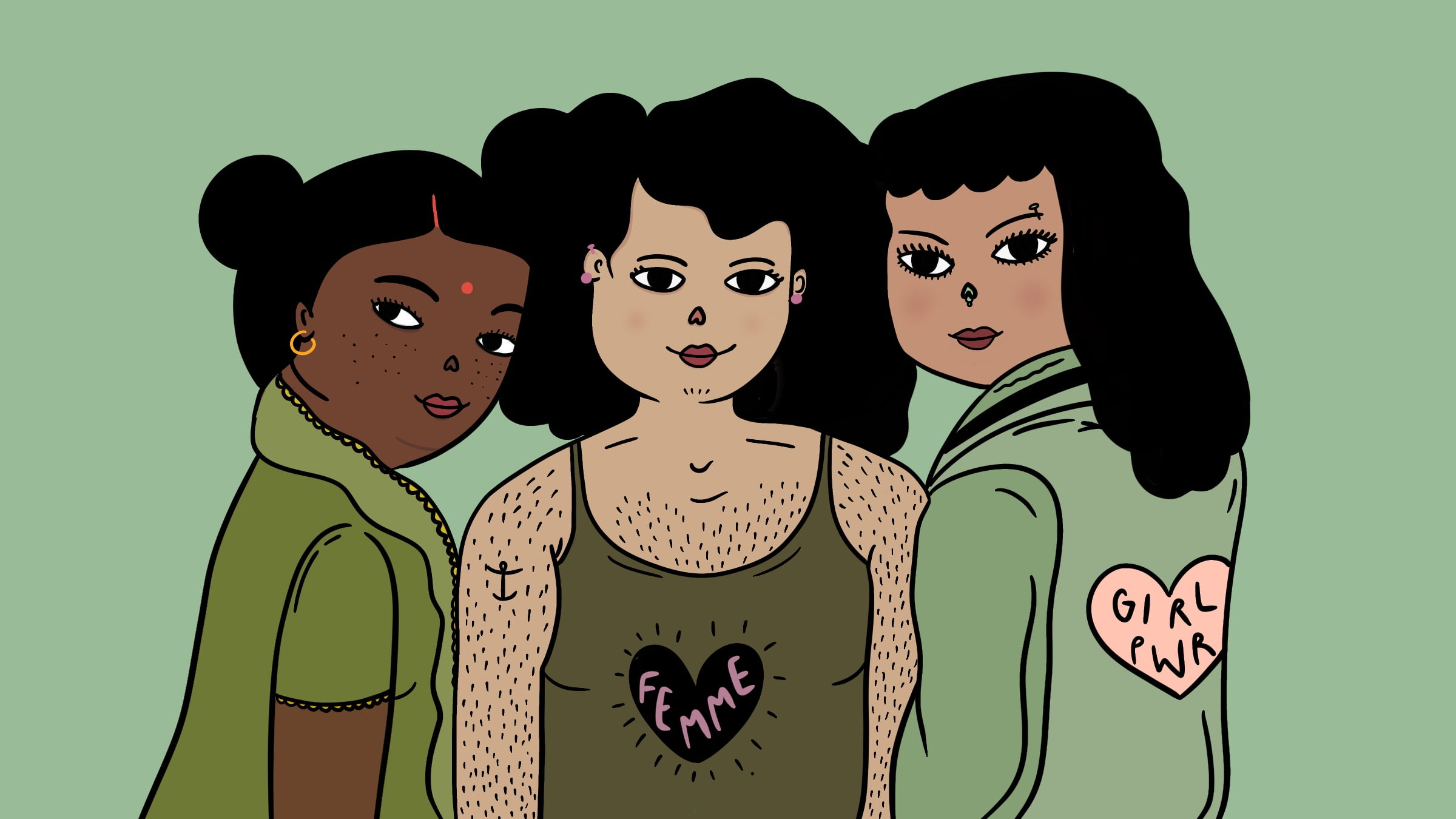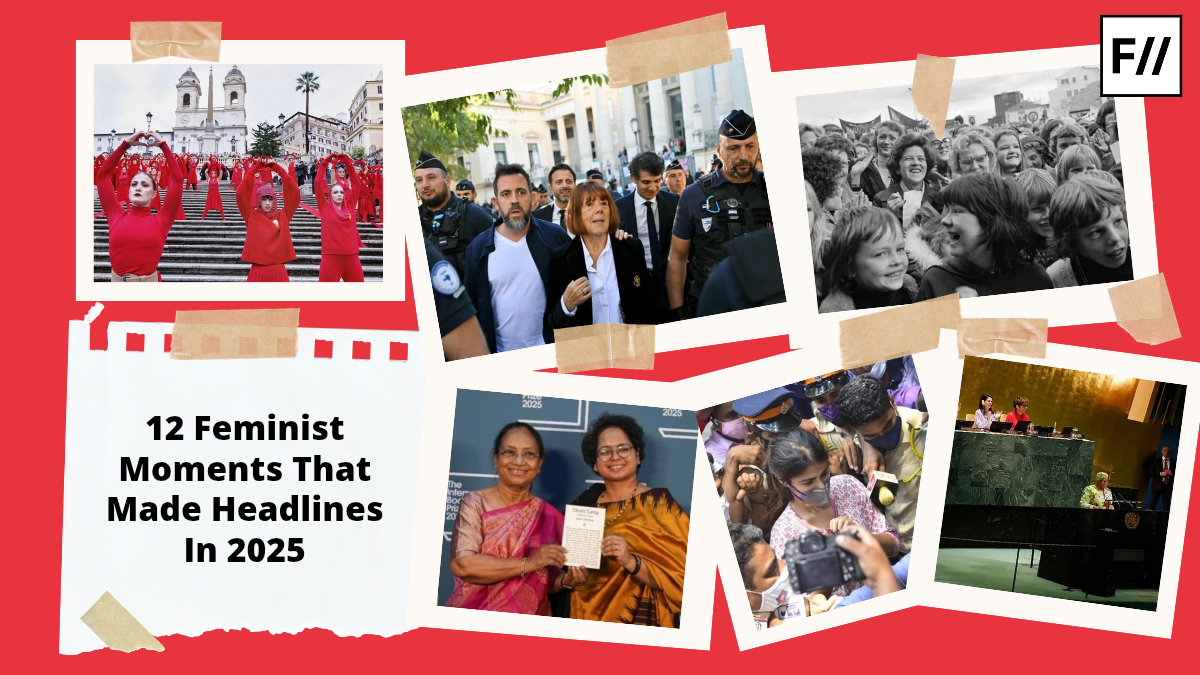As women living in India, our reality is majorly mediated by the caste patriarchy. We are hardly ever told what desire, lust or sex positivity means. Any conversation on ‘sex’ or even the word attaching sex such as ‘sexy’ is deemed taboo.
I remember using the word in front of an aunt who instantly shamed me for it. Mind you, I was twenty two. A woman capable of knowing words spoken from her mouth and what they stood for and yet coercion was the weapon used to inform me what they ‘should’ mean. How I ‘ought’ to use them. In front of whom, when and also where. Her reply left me attaching a negative connotation of shame, embarrassment and impurity with anything that involves ‘sex’ in it. Even if it is just a word such as sexy. How unwelcoming of a feeling it is to learn that whatever you’ve learnt till now was meant to suppress your understanding of how sexuality mediates mental health, profession and physical being.

Caste patriarchy went to great lengths to instill this understanding that I can only be ‘sexy’ for my husband. A sacramental bond was needed to validate my want to discuss ‘sex’ in the private sphere such as a household. This was evident in the manner every time my parents behaved awkwardly the moment a hot, steamy scene was displayed on the tv while we were watching a ‘family movie’.
Not just this, caste patriarchy went to great lengths to instill this understanding that I can only be ‘sexy’ for my husband. A sacramental bond was needed to validate my want to discuss ‘sex’ in the private sphere such as a household. This was evident in the manner every time my parents behaved awkwardly the moment a hot, steamy scene was displayed on the tv while we were watching a ‘family movie’. The instant response was either my dad walking out on us or my mom fidgeting to catch hold of the remote to change the channel or fast forward it. It has always been a funny sight, knowing that we live in a land densely populated, yet how any normalisation of sex or sexuality is a far-sighted dream.
Also read: Rebellious Thighs In Summer Shorts & The Jazz At Our Homes That Never Stop Playing
Social media is the space normalising discussions on sex, sexuality, desire, lust, body positivity and sex positivity for us. In our classrooms, the only education regarding sexuality we receive is from a biological lens. This is where the stigmatisation done in our private sphere by households is taken a further step. Educators, knowing the prevalence of sexual violence around us, tend to ignore the distortions in the system and how any change will not take place without our questioning of how the caste patriarchy works to shape the system.
Majority of girls in high school don’t know what “caste patriarchy” stands for, despite the fact that it influences their lives, conversations and agency. This caste patriarchy is the reason they’re frowned upon when they wear a short skirt, smoke in a public space or assert their needs.
This indefinitely means that whenever we demand to hold conversations about sex and its varied aspects as women in India, what we are asking for is accountability from men and the wider society, responsibility for their actions that stretch far beyond what meets the eye in our everyday lives. It is, by far, the least we can ‘expect’ as a women’s collective.
How frustrating it is to witness being shamed for merely owning up your own selves? For merely wanting to speak about the way you would like your body to be treated in a certain relationship? For merely stating how you like something to be, to be touched, to be looked at or conversed with? For merely using words that men freely do, and never get shamed for?
Sexuality isn’t limited to what happens in the bedroom. That’s a misnomer we feminists are engaging with and doing our best to change. Sexuality is what shapes our ideas, gender, gender performance, body image, outlook on relationships and ideologies. Sexuality is different from sex but definitely a part of it. Unfortunately here in India, sexuality equates to sex because sexuality has ‘sex’ in it and therefore the word is reduced, looked down upon by the mainstream society and is never welcomed.
I wish I were wrong and women in Indian households felt comfortable talking and addressing conversations on sexuality. I wish I witnessed their tones un-flinch as they talked about ‘sex’ and that it wasn’t an immediate ‘haw’ or ‘aisi baatein yahan nahi kartey’ instead.
Women who strive to bring these positive changes by challenging caste patriarchy and its relationship with Indian culture use the word ‘sex’ normally. I no longer shy away from reading the word ‘sex’ out loudly while reading a book, article or newspaper. Earlier, the volume of my voice automatically died down and this alertness instilled in me was deeply problematic. This is why I wish to address why we must begin to unabashedly use the word, hold conversations on our sexuality, sexual wellness and mental health. Sexuality is intricately woven into our gender performances, how can we ever witness a sex positive environment unless we begin to challenge the caste patriarchy that exists in our lives?
Borrowing from Dr Ambedkar’s articulation on the economy of caste and gender, I personally believe one of the most powerful ways to annihilate caste is when we decide who we want to be, what we want and how we want it to be. The moral panic women who transgress caste patriarchal norms create is not a pool of disappointment, rather it is to learn to not be scapegoats of men who want us to exist based on their selected whims.
Also read: The ‘Frustrated’ Indian Politics: Patriarchy’s Need To Control Women’s Bodies
Caste patriarchy functions to ‘protect’ women from crossing caste-mediated boundaries because if they own up their sexuality, decide who or what they want for themselves, they will probably end up transgressing the caste rules. This sad reality explains why khap panchayats commit silent murders of women who dared to transgress and own up their sexual agency. Borrowing from Dr Ambedkar’s articulation on the economy of caste and gender, I personally believe one of the most powerful ways to annihilate caste is when we decide who we want to be, what we want and how we want it to be. The moral panic women who transgress caste patriarchal norms create is not a pool of disappointment, rather it is to learn to not be scapegoats of men who want us to exist based on their selected whims. It is indeed empowering to think of all the women who dare to hold the conversation on sex in our society. Feminist values recognise the importance of respect, boundaries and safe spaces. Creating more safe spaces for ourselves will require for the conversations to begin undoubtedly from us so let us all be sexy until none of us isn’t.
Featured image source: Shreya Tingal/Feminism In India
About the author(s)
Shainal Verma is a feminist research scholar at the Department of Humanities and Social Sciences, Indian Institute of Technology, Delhi. She is a Writing Urban India fellow and an Institute of Critical Social Inquiry New School fellow. She writes on gender, caste, visual culture, and urban space.





